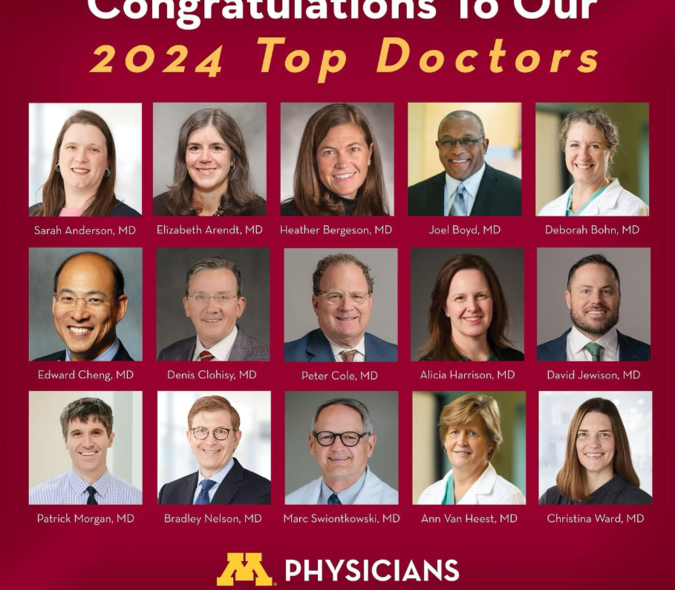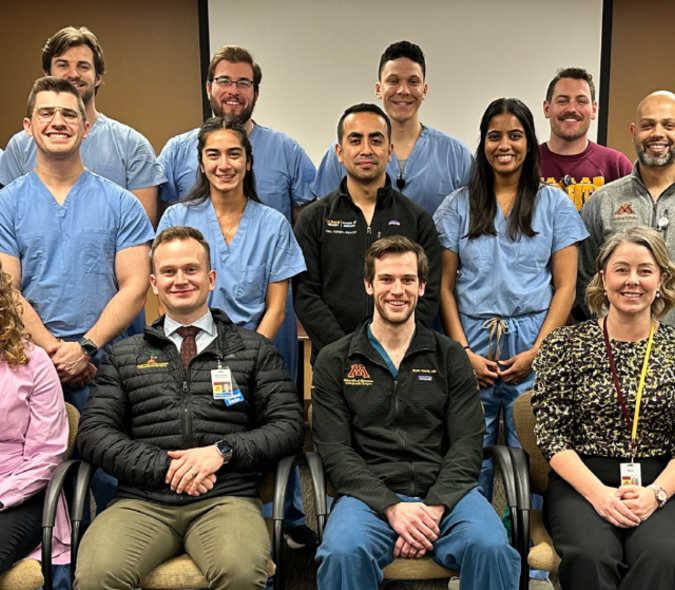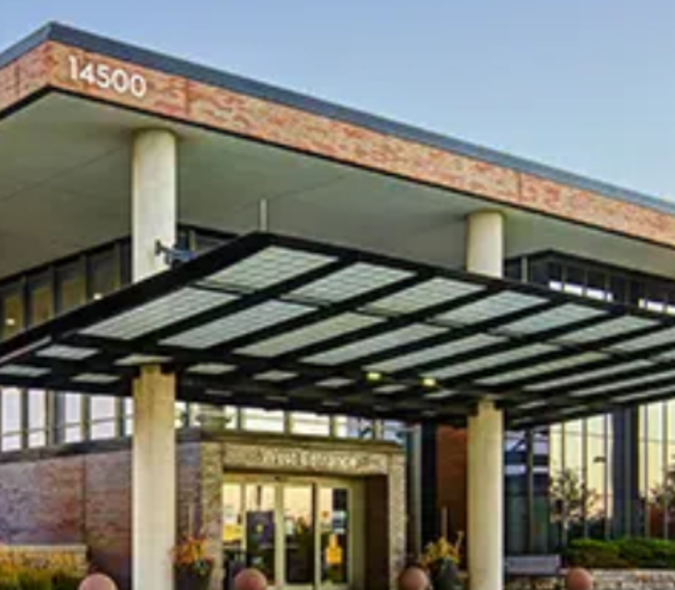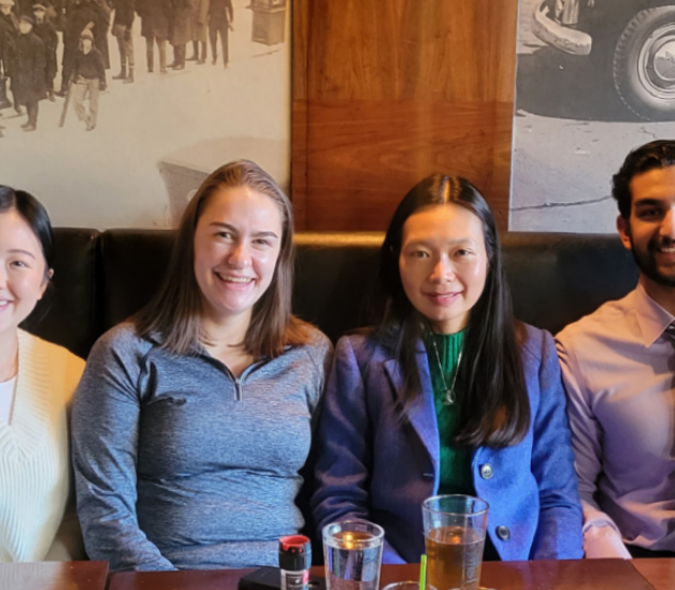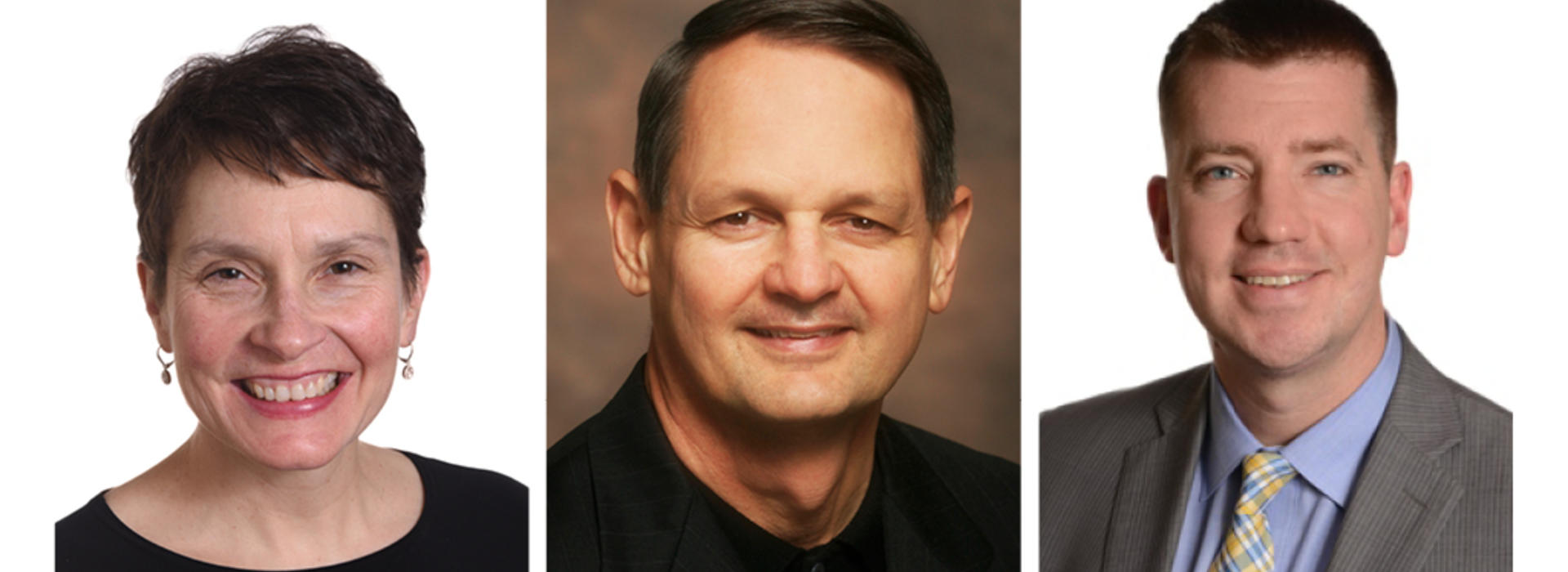
Orthopaedic Mentoring Program Transfers Knowledge Between Generations
Physicians and researchers know all too well the competing interests pulling them in different directions — whether that be family, academic, clinical, or social — establishing a mentorship may seem like one more obligation. But what are the advantages of a mentor?
The Medical School Master Mentoring Program is designed to provide faculty with support and resources as they develop their academic and clinical careers. The program pairs faculty with a mentor that shares similar interests, offers workshops, development seminars, and training programs to ensure U of M faculty achieve their goals.
Within the Department of Orthopaedic Surgery, Dr. Marc Swiontkowski has served as a formal mentor for both Brian Cunningham, MD, an orthopaedic surgeon who primarily practices at TRIA Orthopaedic Center, and Julie Switzer, MD, an orthopaedic surgeon who primarily practices at Regions Hospital.
Dr. Switzer completed her orthopaedic surgery residency at the University of Washington, where Dr. Swiontkowski was serving as the chief of orthopaedic surgery at Harborview Medical Center.
“He was such a role model as well as a friend and advocate, that once he relocated to Minnesota, we stayed in close contact,” Switzer said.
Switzer joined the University of Minnesota Department of Orthopaedic Surgery faculty in 2004. After she was promoted to associate professor, she established the goal of becoming an independent investigator in clinical research of aging and geriatric orthopaedic trauma. It was at this point, about three years ago, that she and Swiontkowski established a formal mentorship with the assistance of Joan Bechtold, PhD, vice chair of research in the Department of Orthopaedic Surgery.
“How often we meet is always up to Dr. Switzer, but we meet at least twice a year, and sometimes quarterly,” Swiontkowski said. “We track progress on grant applications, collaborations with outside investigators, potential grant mechanisms, and check progress. Sometimes I assist in between formal meetings to help write letters of support or review grants.”
Similarly, Cunningham’s relationship with Swiontkowski goes back to the University of Washington, where he completed medical school.
“Dr. Swiontkowski was nominated, and he agreed to start mentoring me,” Cunningham said. They have now been collaborating for two years.
Cunningham’s research examines the role of cost, value, and outcomes in orthopaedic care. His research resulted in the creation of the Value Initiative, which is a program intended to maximize outcomes and value in healthcare systems. His long-term goal is to develop effective mechanisms to disseminate his research to organizations that can then influence physician behavior and improve patient outcomes.
“Dr. Cunningham’s relationship is less formalized and our goal is to meet monthly,” Swiontkowski explained. “The goals are the same, to establish a long-term research vision, and we work through those interim steps on a regular basis.”
Swiontkowski was central in designing the three-year trajectory for the Value Initiative.
“Early on in the Value Initiative, he was crucial in designing the goals and creating a roadmap to pursue my research interests,” Cunningham explained.
“My goal is to keep him focused, rather than getting distracted by research projects that are often in tangential directions and not going to advance his long-term goals,” Swiontkowski added.
Oftentimes, the commitments and expectations required to develop an effective mentor/mentee relationship are overlooked.
“In the scope of things, it’s a minimal time commitment,” Switzer said. “The mentor spends roughly two to three hours per quarter; typically, this would be in a meeting or review of an abstract or letter of intent.”
For the mentee, more is required.
“Even though it’s a two-way street, more of the responsibility falls on the mentee, but it’s for their benefit,” Switzer explained. “It probably takes 5-10 hours a quarter.”
For Cunningham, informal touchpoints and relationship building are critical aspects of his mentorship.
“Frequent interactions are so critical; whether it’s seeing him in clinic, dropping into the OR, or having coffee in the morning, these touchpoints make all the difference to me,” Cunningham said.
The payoff of a mentorship is not always immediate, and in many cases the relationship is a long-term investment.
“You have to put time into it, you have to be flexible,” Cunningham said. “The value of mentorship is not an early payoff all the time, most mentorship is an investment down the road.”
Swiontkowski shared than in his 30+ years of academic orthopaedics, about 30-40 people have approached him about being a mentor.
“Unfortunately, they didn’t uphold their part of the bargain, which is making progress, scheduling meetings, and being accountable,” he said.
What should faculty and residents look for in a mentor? Swiontkowski believes the mentor should have experience and success in a similar career path.
“I would advocate looking for a mentor that has been focused in their own career, and that is willing to be accessible,” he continued. “It’s about improving human health, it’s not about how many publications you have in the long run.”
What are the results of a formal mentorship?
“I cannot think of one downside, there are only upsides to it,” Switzer said. “To have the advice, friendship, and influence of someone who has gone before you is invaluable. We have so many international leaders in the field of orthopaedics in our department, the opportunity for mentorship is really there. To be mentored by one of your role models is one of the most satisfying things.”
“I think the mentorship program is underrated and under-appreciated,” Cunningham added. “I don’t think it needs to be thought of as academic mentorship. I would push to find someone who you get along with, who you have a good relationship with, and whose skill set matches where you want to go.”
To learn more about the Medical School’s Master Mentor Program, please reach out to Joan Bechtold, PhD, or click here. If you are a resident seeking mentorship, click here.
